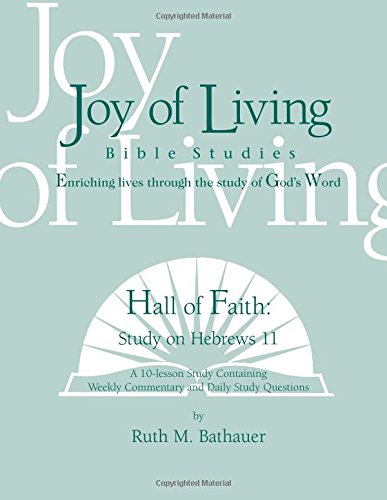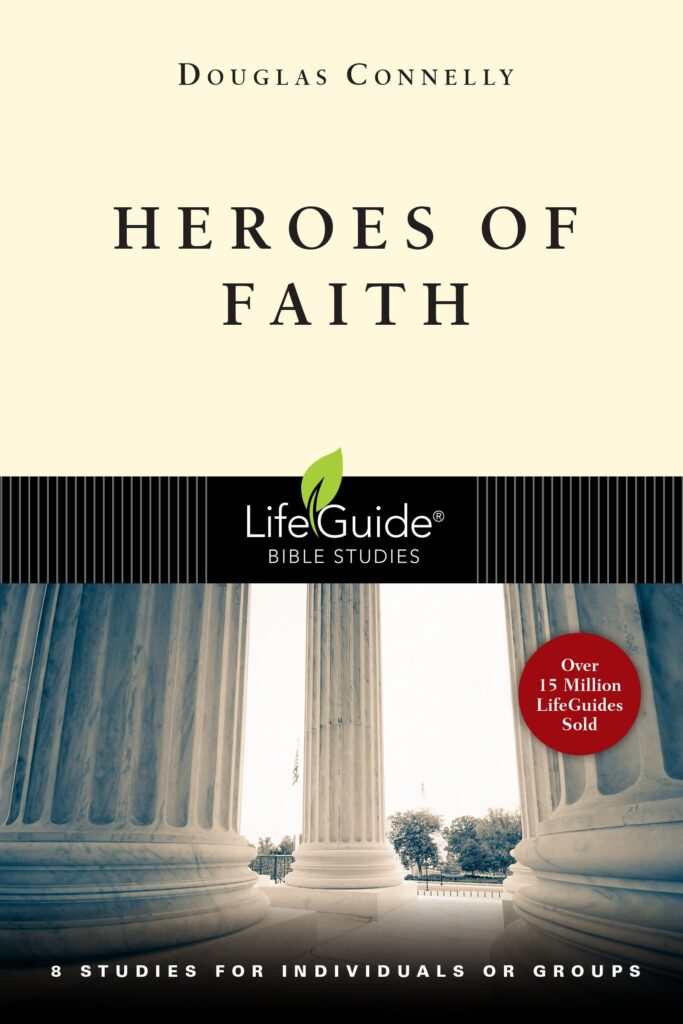Click here to return to Blog Post Intro
Unlikely Heroes: Ordinary People with Extraordinary Faith by Daniel Lockwood

Sarah is an unlikely hero of faith for many reasons—perhaps most notably, she was a woman in a male-dominated culture.
Sarah’s earthly life, as recorded in Genesis 11-23, focuses on God’s promises that Sarah would miraculously bear a son. She believed God would be faithful to His word—and miraculously bore a son at the age of 90! Sarah not only became the mother of the child of promise (fulfilled in Isaac); she also would be the matriarch of a nation (fulfilled in Israel).
Sarah is sometimes treated as a historical footnote, living in the shadow of her husband, Abraham. Let’s consider three biblical descriptions of Sarah:
1. Sarah is Beautiful
In Genesis 12:11 and 14, Sarah is described in terms of her outstanding physical beauty. In Egypt, at the age of sixty-five, her beauty was a bartering commodity between the powerful Pharoah and the ambitious Abraham. Abraham displayed his callous disregard for Sarah’s moral purity and physical protection by concocting his “sister” strategy. His self-centered rationale for the lie is vividly apparent in two phrases: “that it may go well with me because of you, and that my life may be spared for your sake” (Genesis 12:13).
Abraham again used the “sister” strategy to protect himself with pagan king Abimelech, even though Sarah was nearly 90 years old. The encounter with Abimelech occurred the year between God’s promise that Sarah would have a son (Gen. 18:10) and Isaac’s birth (Gen. 21:2).
Sarah’s courageous loyalty is remarkable since she remained in loving partnership with a husband who so ill-used her.
2. Sarah is Barren
Sarah is first introduced as Abraham’s wife with the words “Now Sarah was barren; she had no children” (Gen. 11:30). Her barrenness was mentioned a half-dozen times in the narrative.
Sarah devised the “surrogate wife” strategy and as was common in Ancient Near East culture, presented her handmaid (Hagar) to her husband to bear a child in the mother’s name. Hagar immediately became pregnant and proud, despising her mistress, Sarah, who mistreated her. With this action, the loyal Sarah was misguided in attempting to assist God. Her strategy caused endless amounts of trouble—even to this day.
3. Sarah is Blessed
Sarah’s blessing culminates in the birth of Isaac: God’s “supernatural son” strategy. To underscore the importance of this divinely approved partnership, God authorizes a double name change. In Genesis 17:5, Abraham, originally named Abram—the exalted father—is now Abraham—the father of multitudes. Then, in Genesis 17:15, Sarah’s name is changed from Sarai to Sarah. Since both names mean “princess,” the meaning of the name is less significant than the fact that God changes it to raise her stature in the covenant to that of Abraham—they are partners in the Abrahamic covenant.
Isaac’s name (laughter) is significant because it recalls the three episodes of laughter:
- Abraham before his birth (Gen. 17:17)
- Sarah in disbelief at the notion of having a son (Gen. 18:12)
- Sarah’s laughter of joy at his birth (Gen. 21:6-7)
Sarah’s Principles of Faith
The Principle of Partnership
While both Abraham and Sarah possess individual faith, their faith experiences are inseparably linked, but they each had a vertical relationship—a partnership—with the Lord. For all of us, the life of faith starts there.
The Principle of Contentment
For this principle, there are four qualifications necessary to avoid commonly held misunderstandings about God’s plan for our growth and maturity.
| Four Qualifications | Four Misunderstandings |
| The temporal qualification: They are not fulfilled immediately. | God does not have larger purposes in view. |
| The procedural qualification: They are not fulfilled easily, without struggle. | God is unconcerned about refining us through adversity. |
| The perceptual qualification: They are not fulfilled as understood initially. | Our human perspective is exhaustive, not limited. |
| The eternal qualification: They may not be fulfilled fully in this lifetime. | There is no future, ultimate destiny. |
Dr. John Mitchell, founder of Multnomah School of the Bible, and his wife, Mary, illustrate the principle of contentment. The Mitchells never had children of their own. One chapter in John Mitchell’s biography, The Lion of God, discusses the couple’s desire for children and Mary’s sorrow that she was unable to have any. Throughout their lives and their long ministry at Multnomah, God fills that longing with thousands of “children,” young students whom John and Mary Mitchell “adopted” as their own kids.
If you asked Mary at the end of her life, “Did God fulfill your deepest longings?” she would likely have said, “Yes.” The Lord redefined and refocused her longings, fulfilling them in ways greater than she ever anticipated. The life of faith will fulfill your deepest longings, but it is a process that requires time plus the sandpaper of adversity.
Joy of Living Bible Studies – Hall of Faith: Study on Hebrews 11 by Ruth M. Bathauer

We know that Sarah was a devoted wife throughout her entire life. Sarah faithfully fulfilled God’s standards as a wife and for that she was commended by Peter who used her name as a role model for wives: “For this is the way the holy women of the past who put their hope in God used to make themselves beautiful. They were submissive to their own husbands, like Sarah, who obeyed Abraham and called him her master. You are her daughters if you do what is right and do not give way to fear” (1 Peter 3:5-6).
Great emphasis is often placed on Abraham’s faith to leave Ur of the Chaldeans at God’s command and go to an unknown land. We must conclude that Sarah’s faith was tested at times. First, it was often much harder on the woman to break the familiar ties and to leave her native home, her relatives and friends. Second, she felt disgraced because she was childless. As far as we know, God was only speaking to Abraham, so she had to trust him.
One of the hardest things for human nature to do is wait. Ture faith, however, is the opposite of human nature in that faith is patient.

Twelve long years after God promised Abraham that his offspring would be like counting the stars, there was still no child. Sarah finally determined that her maid Hagar would become a surrogate mother. Sarah and Abraham’s grave error did not change God’s plan but they needed to learn that God is almighty and not limited in any way.
Abraham was 86 when Ishmael, Hagar’s son was born (Gen. 16:16). Thirteen years passed between Genesis 16 & 17, and God was silent about the promised heir until he spoke to Abraham, “I will bless [Sarah] and will surely give you a son by her. I will bless her so that she will be the mother of nations; kings of people will come from her” (Gen. 17:16). True to God’s promise, Sarah became pregnant and had a son within a year.
Sarah, the faithful wife, shared Abraham’s wanderings, his failures and his great triumphs that earned him the title of “God’s friend” (James 2:23). At the ripe old age of 127, Sarah died and was buried in Machpelah, the only piece of land Abraham ever owned in the promised land.
A Great Cloud of Witnesses: A Study of Those Who Lived by Faith by Trillia Newbell

Faith When Things Seem Impossible
It was well established that Sarah was barren. When she was old and biologically unable to have children, Sarah overheard God discussing her pending pregnancy, and she did what most in her state would likely do: she laughed in disbelief (Genesis 18:12). Then, God confronts her for laughing, and she denies it. God then calls her on the lie (verses 13-15). She did laugh and struggled to believe that she could become pregnant.
Then, the Lord tells her what He tells all of us, “Is anything too hard for the Lord?” (Genesis 18:14). God was incredibly gracious and reassured her faith. He didn’t condemn her. It’s such a picture of mercy and grace.
The writer in Hebrews points out that Sarah conceived and had faith not because her faith was incredible, but because she believed God was faithful. It should be noted that the Lord doesn’t promise to do everything we ask, but He does promise to be faithful to us.
Today, as we struggle to believe just as Sarah did at first, we can turn to the Lord and understand what Jesus said:

Heroes of Faith by Douglas Connelly

Abraham and Sarah not only believed God for one child, but they also looked ahead and believed that God would keep His promises completely. They didn’t live long enough to see it all happen, but they embraced the fullness of God’s promises by faith.
The same can be true in our lives. We may not live to see the work of God come to completion in our children or in our friends at church. What we can do is trust that God will do what He says He will do. We can welcome that fulfillment as if it were already a reality.

God’s Hall of Faith Speaks Today (Hebrews 11) by J. David Eshleman

Wherever Sarah went, she instantly received favor and privilege because of her beauty. Beauty can spoil the best of women tempting them to be proud and arrogant. Inner beauty—of a gentle and quiet spirt—is far more important in our witness for Christ than outward beauty.
Sarah knew that God wanted to make Abraham a leader of nations. Her belief enabled her to leave all her familiar surroundings, sever ties with her family and commit to a life of rootless wandering—for the 600 miles from Ur to Haran then another 350 miles to Canaan. When they arrived in Canaan, Abraham built an altar which was an anchor for them, since they were nomads for the remainder of their days.
Despite Sarah’s occasional bursts of temper with her handmaiden and Ishmael and her struggles with discouragement, Sarah remained an essentially good-humored woman. After those long years of bitter frustration, she could still appreciate the irony and relish the comedy of becoming a mother at such an old age. Her life’s ambition was now realized, and the memory of years of bitter disappointment quickly disappeared from view. She forgot what was behind and pressed on to better things ahead. God had indeed been faithful.

